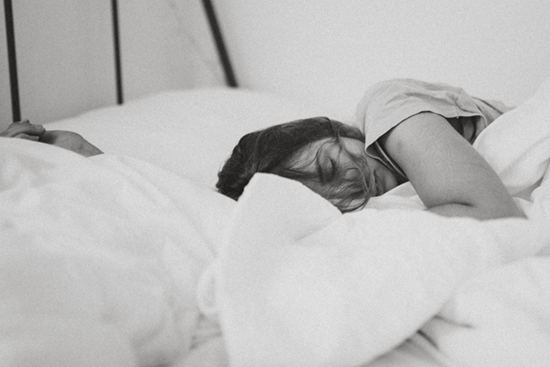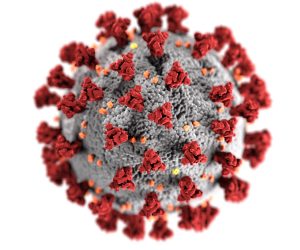
Nature’s Tranquilizer for Better Sleep
Al Sears, MD, CNS – Not being able to get a good night’s sleep is one of the biggest complaints I hear from my patients… and it seems to increase as they age.
It’s difficult enough for many of them to fall asleep, but once they do get to sleep it’s even more frustrating to suddenly wake up from a deep sleep.
These brief periods of unconscious wakefulness are known as “cortical arousal,” and they’re perfectly normal. It’s how your body evolved to protect itself from potential danger.
But when they happen too often, they can put your physical health at risk by disrupting the natural circadian rhythm of your body’s cardiovascular system. And that can lead to higher blood pressure, insulin resistance, heart disease – and in some cases, even higher risk of death.
Fortunately, there are ways you can naturally overcome this increasingly common disorder – nicknamed “sleep arousal burden” (SAB). You don’t have to rely on Big Pharma’s addictive sleeping pills, either.
More on how you can protect your sleep and your heart in a moment.
In a new study published in European Heart Journal, researchers from Australia, the Netherlands, Denmark, and the United States examined the sleep patterns of 8,001 older men and women.1 The research came from three separate long-term studies.
After analyzing over a decade’s worth of data, the scientists determined that waking up frequently increased the risk of heart disease and death.2
In other words, they found that when it comes to your heart health, it isn’t the quantity of sleep that counts… it’s the quality.
Men who experienced SAB more than 8.5% of the time had a 13.4% higher risk of dying from heart disease and 34% increased risk of dying from any cause. The risk to the general population of men at a similar age was 9.6% and 28%, respectively.3
And if you’re a woman, you are particularly at risk…
Women who suffered from SAB most often had nearly double the risk of dying from cardiovascular disease compared to women in general.4
The study authors recommend treating SAB by practicing “good sleep hygiene.” That includes losing weight if needed, not eating before bed, and minimizing noise and light pollution.
These are all good suggestions. But they don’t get to the root of the problem…
Get More of this Mineral for Better Sleep and Robust Heart Health
Many people diagnosed with various sleeping disorders — including unconscious wakefulness — are deficient in the mineral magnesium. I call magnesium nature’s all-natural, non-addictive stress reliever and tranquilizer.
You see, magnesium enhances the effect of the amino acid tryptophan, which your body needs to make melatonin. Without melatonin you can’t sleep. And without tryptophan, your body also can’t make the neurotransmitter serotonin, which stabilizes your mood balance and calms your brain.
Studies have shown that magnesium is a powerful weapon against insomnia and waking up from restless leg syndrome.5,6
But this mineral is also vital for a healthy heart rhythm. Magnesium helps transport the electrolytes like calcium and potassium into cells. Electrolytes are important for the muscle contractions of a normal heartbeat. A magnesium deficiency increases irregular heartbeats known as arrhythmias.
In a review published in 2019, researchers found that a low blood level of magnesium increases your risk of developing cardiovascular disease as well as atrial fibrillation, the most common heart rate disorder.7
Magnesium levels in our modern diet have plummeted. A hundred years ago, most Americans consumed more than 400 mg of magnesium per day, thanks to vegetables grown in nutrient-rich soil. Today, the average intake of magnesium is less than 200 mg a day.8
You can get magnesium by eating nuts, seeds, dairy, and dark green, leafy vegetables. But I also recommend supplementing with 1,000 mg a day. The most absorbable forms are magnesium citrate, glycinate taurate, or aspartate. Take it with vitamin B6 to increase the amount of magnesium that accumulates in your cells.
3 More Sleep-Inducing Supplements
In addition to taking magnesium, I also recommend you:
- Take a tiny amount of melatonin. An MIT study shows you only need 0.3 mg for restful sleep. And taking too much causes receptors in the brain to become unresponsive.9 I suggest using a liquid or spray because they hit your bloodstream more quickly.
- Boost serotonin levels. This “feel good” brain chemical has a naturally calming effect on your body. I’ve had great success treating sleepless patients by recommending the serotonin precursor 5-HTP. I usually start patients on 20 mcg a day, and then gradually increase it to between 50-100 mcg.
- Don’t forget your CBD. The Center for Applied Health Sciences reported that adults who took CBD experienced a 22% improvement in sleep quality and a 21% improvement in sleep quantity.10In another study, researchers found that patients who took CBD for one month had 67% improved sleep.11
To Your Good Health,
![]()
Al Sears, MD, CNS
References:
1. Shahrbabaki SS, et al. “Sleep arousal burden is associated with long-term all-cause and cardiovascular mortality in 8001 community-dwelling older men and women.” Eur Heart J. Published online April 19, 2021. doi:10.1093/eurheartj/ehab151
2. Shahrbabaki SS, et al. “Sleep arousal burden is associated with long-term all-cause and cardiovascular mortality in 8001 community-dwelling older men and women.” Eur Heart J. Published online April 19, 2021. doi:10.1093/eurheartj/ehab151
3. Shahrbabaki SS, et al. “Sleep arousal burden is associated with long-term all-cause and cardiovascular mortality in 8001 community-dwelling older men and women.” Eur Heart J. Published online April 19, 2021. doi:10.1093/eurheartj/ehab151
4. Shahrbabaki SS, et al. “Sleep arousal burden is associated with long-term all-cause and cardiovascular mortality in 8001 community-dwelling older men and women.” Eur Heart J. Published online April 19, 2021. doi:10.1093/eurheartj/ehab151
5. Abbasi B, et al. “The effect of magnesium supplementation on primary insomnia in elderly: A double-blind placebo-controlled clinical trial.” J Res Med Sci. 2012 Dec;17(12):1161-9.
6. Hornyak M , et al. “Magnesium therapy for periodic leg movements-related insomnia and restless legs syndrome: an open pilot study. Sleep. 1998;21(5):501-505
7. Liu M, Dudley S. “Magnesium, oxidative stress, inflammation, and cardiovascular disease.” Antioxidants (Basel). 2020 Oct; 9(10): 907.
8. Rosanoff A, et al. “Suboptimal magnesium status in the United States: are the health consequences underestimated?” Nutr Rev. 2012 Mar;70(3):153-64.
9. Brzeszinski A, et al. “Effects of exogenous melatonin on sleep: A meta-analysis.” Sleep Med Rev. 2005;9(1):41-50.
10. CV Sciences, Inc. (2019, June 17). “Effects of a CBD-containing supercritical fluid extract of hemp on markers of optimal wellness, stress resilience, and recovery in healthy subjects [Press release].
11. Shannon S, et al. “Cannabidiol in anxiety and sleep: A large case series.” Perm J. 2019;23:18-041.
To read the original article click here.






